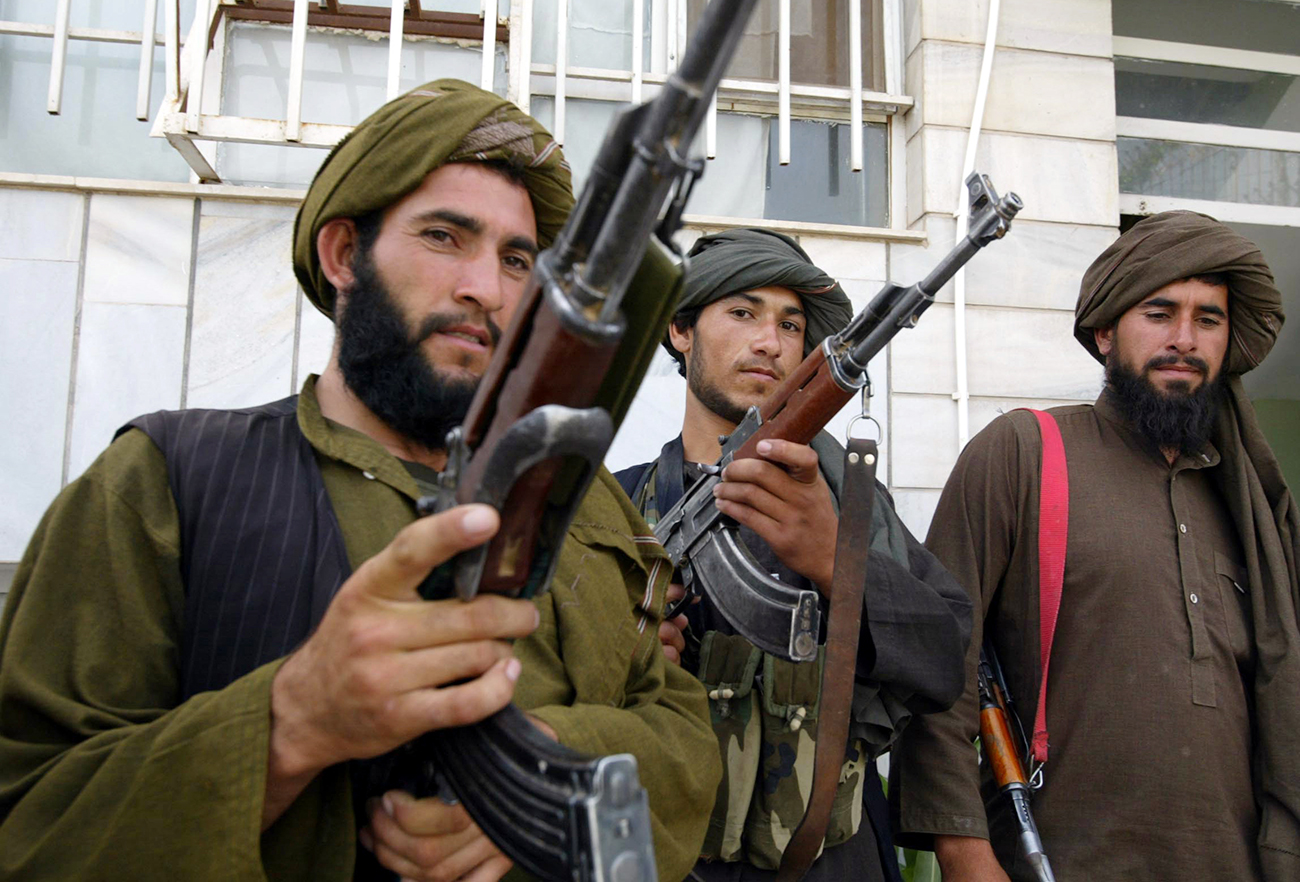
Taliban militants pose for the media after they join the Afghan government in Herat, May 22, 2010.
ReutersMoscow has apparently strengthened ties with the fundamentalist Taliban group and may have even started providing support to the Islamists. That’s according to the Supreme Allied Commander Europe (SACEUR) of NATO and Head of the U.S. European Command, General Curtis Scaparrotti, who was speaking to the Senate Armed Services Committee on March 23.
Replying to questions from Republican Senator Ted Cruz about "growing support" for Islamists including the Taliban, Scaparrotti said he had recently seen "increased [Russian] influence in terms of association and perhaps even supply to the Taliban."
However, the Russian president’s special envoy to Afghanistan – Zamir Kabulov – rejected the claims, saying the American military commander is simply trying to justify Washington’s shortcomings in the Middle East.
“This does not even merit any reaction, since these statements are fabrications designed to justify the failure of the U.S. military and politicians in the Afghan campaign; we cannot find any other explanation," Kabulov said, as cited by RIA Novosti.
In March, the Russian Ministry of Foreign Affairs published a detailed clarification about Moscow's contacts with the Taliban, which prompted "some Afghan officials" to accuse Moscow of supporting the Taliban movement.
"Needless to say, all these accusations are not supported by any evidence," the Foreign Ministry said, adding that the circulation of such rumors is an attempt to undermine the international antiterrorist efforts in Afghanistan by forces not interested in stabilizing the country. The Taliban, as well as Al-Qaeda and ISIS, are currently operating in Afghan territory.
"The limited contacts with the Taliban movement are subordinated to the task of ensuring the safety of Russian citizens in Afghanistan, and are aimed at encouraging the Taliban movement to join the national reconciliation process under the leadership of Kabul on the basis of three well-known principles: recognition of the constitution of the Islamic Republic of Afghanistan, disarmament, and cutting links with ISIS, Al-Qaeda, and other terrorist organizations," the Foreign Ministry said.
These actions "hardly legitimize the Taliban," according to Russian diplomats. Many states in the region, as well as the UN mission in Afghanistan, maintain contact with the Taliban, Moscow said.
Russia also claimed it was making its contribution to the collective struggle against terrorism in Afghanistan, providing free assistance to equip the Afghan national security forces with weapons and ammunition, and organizing training for their members through "Russian specialized educational institutions.”
The Russian Defense Ministry's official spokesman, Major-General Igor Konashenkov, echoed Kabulov’s statement, that General Scaparrotti’s remarks don't even merit serious analysis.
"The same allegations were voiced in the Senate by Scaparrotti's predecessor and now pensioner, General Philip Breedlove. There are no facts, no specific figures or documents – just the same slogans, only now in new covers, and absurd accusations," Konashenkov stated.
In his opinion, the Pentagon is blaming Russia, which has not been present in Afghanistan since 1989, in a bid to justify its own failure to stabilize the situation in Afghanistan during Washington’s 16 years in the country.
Kubulov added that following the change of administration in the White House, an invitation to the American side to take part in negotiations cannot be ruled out. He said that the U.S. presence in Afghanistan should continue. "As far as I know, for the time being Trump is not going to pull anything out. It is logical because, if he decides to withdraw the contingent, everything will definitely collapse," Kabulov told Interfax at the end of January.
For its part, the U.S. has had to lift sanctions against Rosoboronexport – the agency for Russia's exports and imports of defense-related products – in order to purchase spare parts to repair Mi-17 helicopters previously delivered to the Afghan army.
"We have practically had no direct cooperation with the United States, except for the helicopters that we supplied for the needs of the Afghan army,” Rostec head Sergei Chemezov said in March. “About 50 Mi-17 transport helicopters were produced and delivered. And now the question is how to repair them, so the Americans have again been forced to lift sanctions against Rosoboronexport in order to buy the spare parts."
First published in Russian by Gazeta.ru.
If using any of Russia Beyond's content, partly or in full, always provide an active hyperlink to the original material.
Subscribe
to our newsletter!
Get the week's best stories straight to your inbox